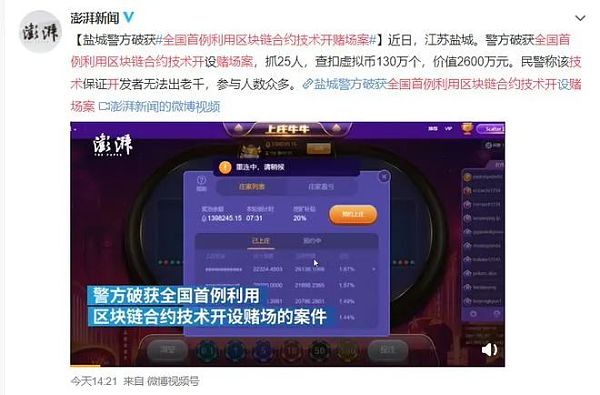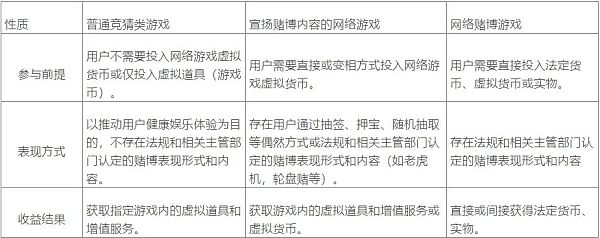Author: Lawyer Shao Shiwei
Introduction
In Under China's policy and regulatory environment, blockchain game entrepreneurs need to pay attention to avoiding gambling risks from a compliance perspective.
In a press conference held by the Supreme People's Procuratorate on November 29, 2021, it was clearly stated that "The application software suspected of gambling has a significant The characteristic is that it has the relevant cash withdrawal function."
The basic mode of chain games, "play to earn" (play and earn), is It means that players can obtain in-game tokens by playing games, and the tokens can be exchanged for virtual currencies such as Tether. Moreover, most chain game users do not play games, but actually want to cash out the tokens in chain games by buying low and selling high. make money.
So, based on the above description of the Supreme People's Procuratorate, does it mean that the "play and earn" model of chain games naturally possesses the characteristics of gambling? This article discusses this.
01 Cases involving gambling in chain games
Fomo3D, which has attracted 70 million in revenue in 16 days since its birth, is a game based on the Ethereum network. The core gameplay is "bidding". Each time the player increases the price, the game countdown will be refreshed. , the last bidder will receive 48% of the Ether coins in the bonus pool. This "big fish eats small fish" game is rumored to have a turnover of 170 million in one month.
Biggame - the country's first casino case using blockchain contract technology, an app developed by domestic personnel, users install the Yuzi coin wallet and exchange RMB After Yuzi Coin, the app provides a variety of gambling games for players to place bets.

02 What kind of game is gambling?
my country’s laws do not explicitly stipulate what kind of online games will constitute gambling crimes. But we can sort it out and summarize it through relevant laws and policies.
According to the 2020 notice of the General Office of the Ministry of Culture on the issuance of the "Guidelines on Key Points for the Supervision and Law Enforcement of Virtual Currency in Online Games", general guessing online games, including content that promotes gambling, The main differences between online games and online gambling games are as follows:

It can be summarized from this table that if anonline game involves gambling, it should have three key points: p>
1. Prerequisite for participation: Users need to pay to purchase props/game currency within the platform
2. Expression method: The gameplay is accidental. Users participate in the game in a "small way to make big gains", and there is the possibility of losses
3. Income results: Users directly or Withdraw cash indirectly and obtain legal currency
03 Does chain games involve gambling? Detailed analysis of specific issues
Based on the above three key points, we will conduct an analysis based on the characteristics of chain games.
1. Pay to purchase props/game currency within the platform.
Most chain game platforms require users to pay to purchase in-platform props or tokens. The specific method is: first use legal currency to purchase virtual currency through exchanges (Binance, OKEX, etc.); then download the wallet (TokenPocket, MetaMask, etc.) and transfer the purchased virtual currency to the wallet; connect the wallet in the chain game Afterwards, props or tokens can be purchased within the platform through the wallet.
Even if a small number of chain games claim to be free at the beginning, it is a promotion to attract users. In order to have a better gaming experience in the future, users still need Krypton gold.
2. You can withdraw cash directly/indirectly and obtain legal currency.
For foreign chain game projects, users’ NFT or game tokens in the platform can be withdrawn as virtual currencies in exchanges. Domestically, due to China’s policy on virtual currency, virtual currency is not legally compensable and is a virtual commodity. According to game-related legal provisions [1]: “Game points shall not be traded, exchanged or used as “virtual currency”. Services for exchanging cash and property in disguised ways."
Therefore, for domestic blockchain games, if the tokens issued in the game can be converted into virtual currencies (subsection below), then point 1 of the above characteristics must be combined (upper score), it has the upper and lower score characteristics of gambling crimes.
3. How to play: Accidental, use small to gain big, possibility of loss.
The current types of chain games can be mainly divided into: development type, simulation management type, sandbox type, card type, mining type, For competitive games, etc., it is impossible to distinguish whether a game involves gambling depending on the category. The details still depend on the specific gameplay of the platform.
For example, blind box, lottery and other games, the user's victory or defeat is highly contingent. If the user pays for the lottery, the value of the game props obtained will be greater. If there is a difference, there is a possibility of loss, and the risk involved in gambling is high.
04 Lawyer advice
Since domestic laws and regulations related to blockchain and Metaverse are not yet complete, and relevant policies have a negative attitude towards virtual currency, mining, etc., if the project team plans to launch chain game products in China , Strict legal process risk control must be done before and after the product is launched.
Before going online, a strict risk assessment of the game mechanism is required to prevent gambling risks;
After going online, product data needs to be monitored regularly to prevent users from exploiting platform vulnerabilities for gambling;
In addition, attention should be paid to user complaints and reports. Once relevant involvement is discovered, Gambling behavior requires timely optimization and improvement of products.
[1] Notice of the Ministry of Public Security, the Ministry of Information Industry, the Ministry of Culture, and the General Administration of Press and Publication on regulating the order of online game operations and prohibiting the use of online games for gambling [Document No. :Gongtongzi [2007] No. 3】
 JinseFinance
JinseFinance
 JinseFinance
JinseFinance JinseFinance
JinseFinance Cheng Yuan
Cheng Yuan JinseFinance
JinseFinance JinseFinance
JinseFinance JinseFinance
JinseFinance JinseFinance
JinseFinance Alex
Alex JinseFinance
JinseFinance Ftftx
Ftftx